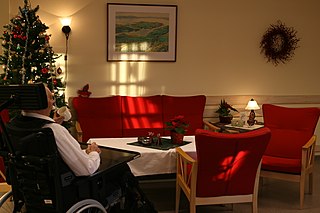History
Springer Publishing Company [2] was founded in 1950 by Bernhard Springer, the Berlin-born great-grandson of Julius Springer, who founded Springer-Verlag (now Springer Science+Business Media). Springer Publishing's first landmark publications included Livestock Health Encyclopedia by R. Seiden and the 1952 Handbook of Cardiology for Nurses. The company's books soon branched into other fields, including medicine and psychology. Nursing publications grew rapidly in number, as Modell's Drugs in Current Use, a small annual paperback, sold over 150,000 copies over several editions. Solomon Garb's Laboratory Tests for Nurses, first published in 1954, sold nearly 240,000 copies over six editions in 25 years. In its second decade, the firm expanded into new publishing areas to reflect the rapidly expanding health care industry. Gerontology was a growing topic of interest, and in the 1960s Bernhard Springer published six titles on aging. Meanwhile, publications in psychiatry and psychology continued to grow.
After Bernhard Springer's death in 1970, [2] his wife Ursula assumed responsibility for the company, and the firm continued to expand, adding titles in social work, counseling, rehabilitation, and public health, in addition to publishing journals, and annual reviews. [6] In 2004, Ursula Springer sold Springer Publishing Company to Mannheim Holdings, LLC, a subsidiary of the Mannheim Trust. In 2008 they established a division to focus on nursing, and "signs to look for" when abuse is suspected. [3] In 2015, Demos Medical Publishing merged into Springer Publishing. [7]
Psychotherapy is the use of psychological methods, particularly when based on regular personal interaction, to help a person change behavior, increase happiness, and overcome problems. Psychotherapy aims to improve an individual's well-being and mental health, to resolve or mitigate troublesome behaviors, beliefs, compulsions, thoughts, or emotions, and to improve relationships and social skills. Numerous types of psychotherapy have been designed either for individual adults, families, or children and adolescents. Certain types of psychotherapy are considered evidence-based for treating some diagnosed mental disorders; other types have been criticized as pseudoscience.

Gerontology is the study of the social, cultural, psychological, cognitive, and biological aspects of aging. The word was coined by Ilya Ilyich Mechnikov in 1903, from the Greek γέρων (gérōn), meaning "old man", and -λογία (-logía), meaning "study of". The field is distinguished from geriatrics, which is the branch of medicine that specializes in the treatment of existing disease in older adults. Gerontologists include researchers and practitioners in the fields of biology, nursing, medicine, criminology, dentistry, social work, physical and occupational therapy, psychology, psychiatry, sociology, economics, political science, architecture, geography, pharmacy, public health, housing, and anthropology.
Clinical psychology is an integration of human science, behavioral science, theory, and clinical knowledge for the purpose of understanding, preventing, and relieving psychologically-based distress or dysfunction and to promote subjective well-being and personal development. Central to its practice are psychological assessment, clinical formulation, and psychotherapy, although clinical psychologists also engage in research, teaching, consultation, forensic testimony, and program development and administration. In many countries, clinical psychology is a regulated mental health profession.

Hildegard E. Peplau was an American nurse and the first published nursing theorist since Florence Nightingale. She created the middle-range nursing theory of interpersonal relations, which helped to revolutionize the scholarly work of nurses. As a primary contributor to mental health law reform, she led the way towards humane treatment of patients with behavior and personality disorders.
Allied health professions (AHPs) are a category of health professionals that provide a range of diagnostic, preventive, therapeutic, and rehabilitative services in connection with health care. While there is no international standard for defining the diversity of allied health professions, they are typically considered those which are distinct from the fields of medicine, nursing and dentistry.

Long-term care (LTC) is a variety of services which help meet both the medical and non-medical needs of people with a chronic illness or disability who cannot care for themselves for long periods. Long-term care is focused on individualized and coordinated services that promote independence, maximize patients' quality of life, and meet patients' needs over a period of time.
A mental health professional is a health care practitioner or social and human services provider who offers services for the purpose of improving an individual's mental health or to treat mental disorders. This broad category was developed as a name for community personnel who worked in the new community mental health agencies begun in the 1970s to assist individuals moving from state hospitals, to prevent admissions, and to provide support in homes, jobs, education, and community. These individuals were the forefront brigade to develop the community programs, which today may be referred to by names such as supported housing, psychiatric rehabilitation, supported or transitional employment, sheltered workshops, supported education, daily living skills, affirmative industries, dual diagnosis treatment, individual and family psychoeducation, adult day care, foster care, family services and mental health counseling.
Meredith Wallace Kazer is a professor of nursing and dean of the Marion Peckham Egan School of Nursing and Health Studies at Fairfield University.

Gerontological nursing is the specialty of nursing pertaining to older adults. Gerontological nurses work in collaboration with older adults, their families, and communities to support healthy aging, maximum functioning, and quality of life. The term gerontological nursing, which replaced the term geriatric nursing in the 1970s, is seen as being more consistent with the specialty's broader focus on health and wellness, in addition to illness.
The American Nurses Credentialing Center (ANCC), a subsidiary of the American Nurses Association (ANA), is a certification body for nursing board certification and the largest certification body for advanced practice registered nurses in the United States, as of 2011 certifying over 75,000 APRNs, including nurse practitioners and clinical nurse specialists.

The University of South Florida College of Nursing is one of 14 colleges at the University of South Florida. The college has three campuses: Tampa, St. Petersburg, and Sarasota-Manatee.
Judith S. Beck is an American psychologist who is best known for her work in cognitive therapy and cognitive behavioral therapy. Her father is Aaron Beck, the founder of cognitive therapy, with whom she has worked on many occasions. She received her doctoral degree from the University of Pennsylvania in 1982.

Nurses in Canada practise in a wide variety of settings, with various levels of training and experience. They provide evidence-based care and educate their patients about health and disease.
May Louise Hinton-Wykle, is an American nurse, gerontologist, educator, researcher, and the first African-American Marvin E. and Ruth Durr Denekas Endowed Chair at the Frances Payne Bolton School of Nursing of Case Western Reserve University. Wykle also serves as a professor at Georgia Southwestern State University and teaches Geriatric Nursing, Mental Health Nursing, Nursing Administration, and Minority Student Recruitment and Retention.
Teresa Thomas "Terry" Fulmer, is the current president of The John A. Hartford Foundation. Earlier positions include distinguished professor and dean of the Bouvé College of Health Sciences at Northeastern University and dean of the College of Nursing at New York University. She is known for her extensive research in geriatrics and elder abuse. She has received funding from the National Institute on Aging, the National Institute of Nursing Research and other foundations for her research regarding elder abuse.
The Institute of Gerontology (IOG) at Wayne State University conducts research on the behavioral and social aspects of aging. Located in Detroit, Michigan, the Institute has a strong focus on urban issues, especially disability, mobility and transportation, financial challenges, and disparities in health between ethnic groups. Faculty at the Institute are jointly appointed with a home department in a complementary discipline, such as economics, physical therapy or nursing. The Institute also maintains a Lifespan Cognitive Neuroscience of Aging laboratory currently profiling brain changes in normal aging through traditional testing and magnetic resonance imaging (MRI) of participants brain structure and function.
An adult-gerontology nurse practitioner (AGNP) is a nurse practitioner that specializes in continuing and comprehensive healthcare for adults across the lifespan from adolescence to old age.
Geriatric psychology is a subfield of psychology that specializes in the mental and physical health of individuals in the later stages of life. These specialized psychologists study a variety of psychological abilities that deplete as aging occurs such as memory, learning capabilities, and coordination. Geriatric psychologists work with elderly clients to conduct the diagnosis, study, and treatment of certain mental illnesses in a variety of workplace settings. Common areas of practice include loneliness in old age, depression, dementia, Alzheimer's disease, vascular dementia, and Parkinson's disease.

The University of Social Welfare and Rehabilitation Sciences is a public university in Tehran, Iran. The university has three faculties including rehabilitation sciences, behavioural sciences, and educational sciences and social welfare. It is a specialized university in the fields of rehabilitation, welfare, social health, and mental health.







